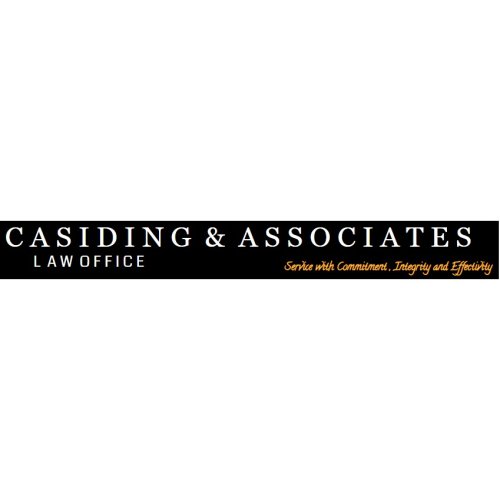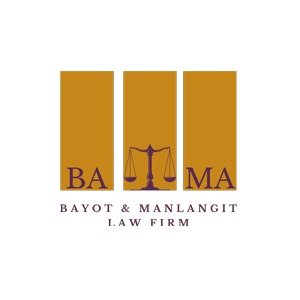Best International Trade Law Lawyers in Philippines
Share your needs with us, get contacted by law firms.
Free. Takes 2 min.
Or refine your search by selecting a city:
List of the best lawyers in Philippines
About International Trade Law in Philippines
International Trade Law in the Philippines governs the rules and regulations on the exchange of goods and services between the country and the rest of the world. It is deeply influenced by international agreements and organizations, such as the World Trade Organization (WTO) and ASEAN Free Trade Area (AFTA). The law encompasses a wide range of regulations, including tariffs, trade agreements, import-export restrictions, and dispute resolution mechanisms.
Why You May Need a Lawyer
Understanding and navigating the complexities of International Trade Law can be challenging. Here are some common situations where seeking legal assistance may be necessary:
- Negotiating or drafting international sales contracts.
- Compliance with import/export regulations and customs duties.
- Resolving trade disputes or breaches of trade agreements.
- Assessing risks related to international trade activities.
- Understanding and implementing trade sanctions and embargoes.
Local Laws Overview
The Philippines is bound by various international trade agreements that shape its local laws. Key aspects include:
- Customs Modernization and Tariff Act - Governs duties, tariffs, and import/export procedures.
- Export Development Act - Encourages and regulates exports from the Philippines.
- Intellectual Property Code - Protects patents, trademarks, and copyrights in international trade.
- Foreign Investments Act - Guides foreign investors on acceptable business activities in the Philippines.
- ASEAN Economic Community (AEC) agreements - Facilitate trade liberalization among ASEAN countries.
Frequently Asked Questions
What is the role of the Bureau of Customs in international trade?
The Bureau of Customs is responsible for regulating and facilitating the flow of goods into and out of the Philippines, collecting customs duties and taxes, and preventing the entry of illegal goods.
What documents are required for importing goods into the Philippines?
Common documents include a bill of lading or airway bill, commercial invoice, packing list, import permit or license, and certificate of origin, among others depending on the goods.
How are trade disputes resolved in the Philippines?
Trade disputes can be settled through negotiation, mediation, arbitration, or litigation, with reference to local laws and international agreements.
What are the penalties for non-compliance with trade regulations?
Penalties can range from fines, confiscation of goods, suspension of trading rights, to more serious criminal charges depending on the violation.
Are there incentives for exporters in the Philippines?
Yes, the government provides incentives such as tax breaks, financial assistance, and technical support to encourage exports.
How can a business protect its intellectual property in international trade?
Businesses should register their intellectual properties, such as trademarks and patents, in the Philippines and other countries where protection is sought.
What is the process for establishing a foreign trading company in the Philippines?
Foreign companies must comply with the Foreign Investments Act and register with the Securities and Exchange Commission (SEC), among other requirements.
Can foreign companies participate in Philippine government procurements?
Generally, the Government Procurement Reform Act favors Filipino enterprises, but foreign companies may participate under specific conditions or agreements.
What international trade agreements is the Philippines a part of?
The Philippines is part of several agreements including the WTO, ASEAN Free Trade Area, Regional Comprehensive Economic Partnership (RCEP), and various bilateral agreements.
How do trade sanctions impact international business in the Philippines?
Trade sanctions can limit or prohibit trade with certain countries or entities, affecting businesses involved in those regions.
Additional Resources
For further information, consider consulting the following resources:
- Bureau of Customs - Provides guidelines and procedures related to import/export activities.
- Department of Trade and Industry (DTI) - Offers resources on trade policies and business support.
- Philippine Chamber of Commerce and Industry - A platform for networking and trade-related advocacy.
- ASEAN Legal Information Centre - For insights into trade laws affecting ASEAN countries.
- World Trade Organization (WTO) Documentation - For global trade rules and agreements.
Next Steps
If you need legal assistance in International Trade Law, consider the following steps:
- Identify specific legal issues or questions you need help with.
- Research and select a qualified lawyer with expertise in International Trade Law.
- Prepare relevant documents and records to facilitate a thorough consultation.
- Schedule a consultation to discuss your case and explore possible solutions.
- Follow the legal advice provided and stay updated on relevant legislative changes.
Lawzana helps you find the best lawyers and law firms in Philippines through a curated and pre-screened list of qualified legal professionals. Our platform offers rankings and detailed profiles of attorneys and law firms, allowing you to compare based on practice areas, including International Trade Law, experience, and client feedback.
Each profile includes a description of the firm's areas of practice, client reviews, team members and partners, year of establishment, spoken languages, office locations, contact information, social media presence, and any published articles or resources. Most firms on our platform speak English and are experienced in both local and international legal matters.
Get a quote from top-rated law firms in Philippines — quickly, securely, and without unnecessary hassle.
Disclaimer:
The information provided on this page is for general informational purposes only and does not constitute legal advice. While we strive to ensure the accuracy and relevance of the content, legal information may change over time, and interpretations of the law can vary. You should always consult with a qualified legal professional for advice specific to your situation.
We disclaim all liability for actions taken or not taken based on the content of this page. If you believe any information is incorrect or outdated, please contact us, and we will review and update it where appropriate.
Browse international trade law law firms by city in Philippines
Refine your search by selecting a city.

















